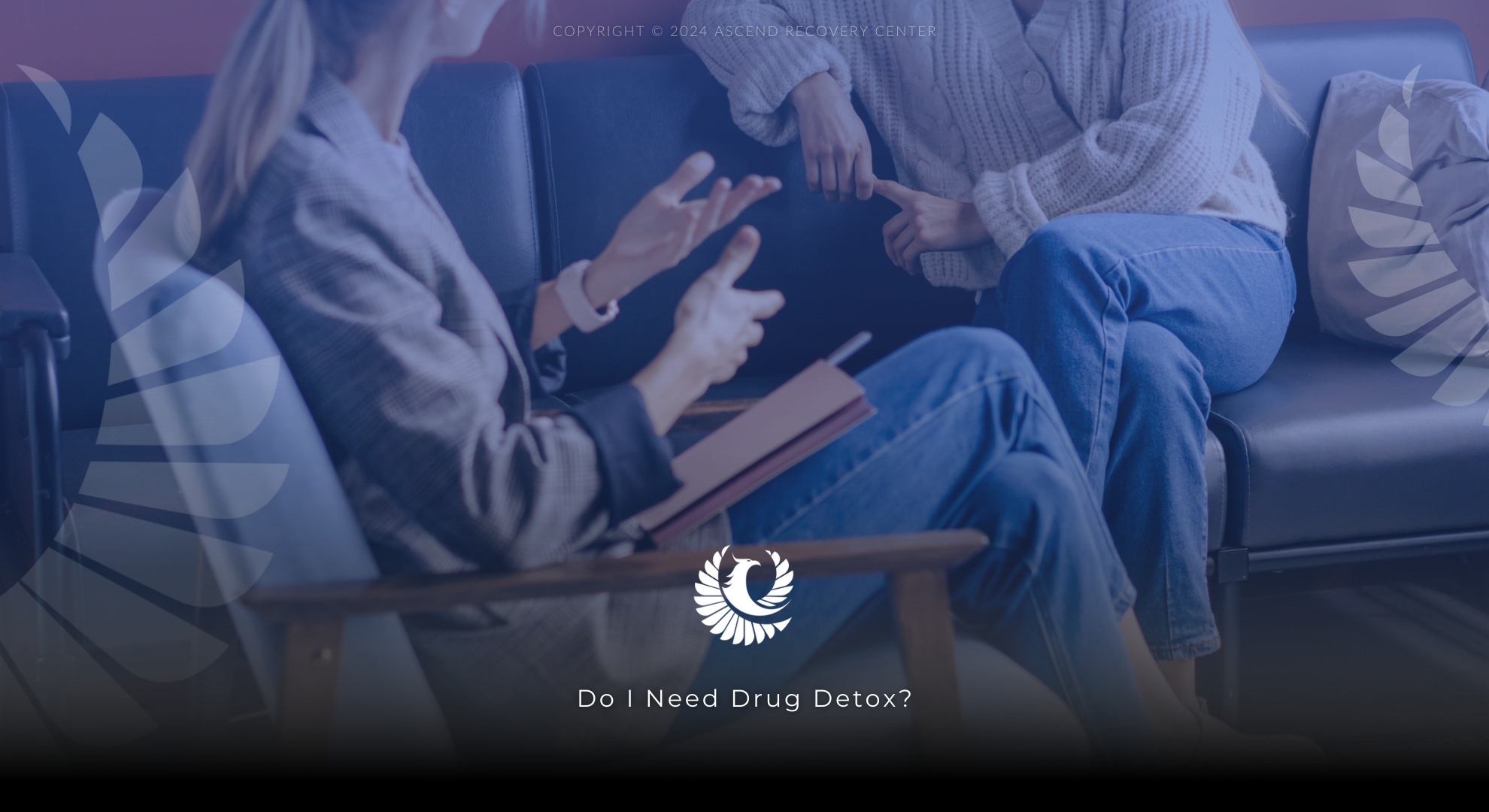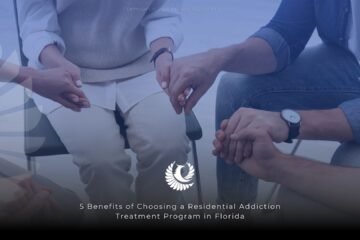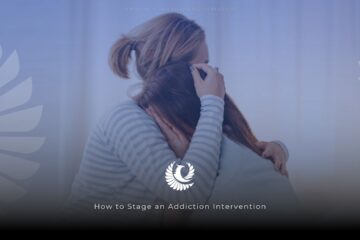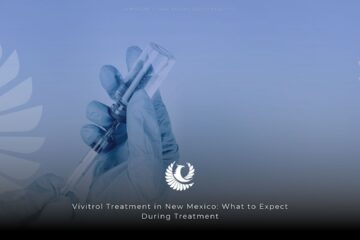Drug addiction is a complex and challenging condition that affects people from all walks of life. If you or a loved one is struggling with substance use, it’s important to recognize the signs and take the necessary steps toward recovery. One of the crucial first steps in the journey to recovery is drug detox. Ascend Recovery Centers’ guide to drug detox will walk you through everything you need to know, from its importance to the process and duration.
Understanding the Importance of Drug Detox
Detox is the process of removing toxic substances from the body under medical supervision. It is a critical phase in addiction treatment as it helps individuals safely manage withdrawal symptoms and achieve physical stabilization. Detoxification allows the body to rid itself of harmful substances and prepares individuals for the next stages of treatment.
The Role of Drug Detox in Recovery
Detoxification is not a standalone treatment for addiction but rather a crucial first step in the recovery process. It sets the foundation for successful treatment by addressing the physical aspect of addiction. By safely managing withdrawal symptoms and providing a supportive environment, drug detox helps individuals transition into the next phase of treatment, which often includes therapy, counseling, and support groups.
Ascend Recovery Centers: Providing Compassionate and Comprehensive Care
At Ascend Recovery Centers, we understand the challenges individuals face when dealing with substance use disorders. We offer a range of treatment options, including drug and alcohol detox, to support individuals on their journey to recovery. Our compassionate and experienced team is committed to providing personalized care and guidance throughout the detox process and beyond.
Signs You Need Drug Detox
Recognizing when to seek professional help is crucial for successful recovery. Here are some signs that indicate you may need drug detox:
1. Physical Dependence and Withdrawal Symptoms
If you experience withdrawal symptoms when attempting to quit or reduce your drug use, it is a clear indication of physical dependence. Symptoms can vary depending on the substance, including headaches, nausea, tremors, sweating, and irritability. Seeking professional help through a drug detox program can provide the necessary support and medical intervention to manage these symptoms safely.
2. Inability to Control or Stop Drug Use
If you find yourself unable to control or stop your drug use despite negative consequences, it may be time to consider drug detox. Addiction often impairs an individual’s ability to make rational decisions and exert self-control. Seeking professional help can provide the necessary support and guidance to break the cycle of addiction.
3. Negative Impact on Relationships and Responsibilities
Addiction can have a significant negative impact on relationships and responsibilities. If your drug use has caused strain in your relationships, led to conflicts, or resulted in neglecting important responsibilities, it is a clear sign that professional help is needed. Drug detox can help individuals regain control of their lives and rebuild healthy relationships.
4. Failed Attempts to Quit on Your Own
If you have tried to quit using drugs on your own but have been unsuccessful, it may be time to seek professional help through a drug detox program. Addiction is a complex disease that often requires comprehensive treatment. Professional programs not only provide medical supervision but also offer the necessary support and resources to address the underlying causes of addiction.
5. Concerns Expressed by Family and Friends
If your family and friends express concerns about your drug use, it is important to listen and take their concerns seriously. Loved ones often notice signs of addiction before individuals are willing to admit it themselves. Their support and encouragement can be instrumental in seeking the help you need.
6. Harm to Yourself or Others
If your drug use has resulted in harm to yourself or others, it is a clear indication that professional help is necessary. Whether it’s physical injuries, accidents, or incidents of violence, seeking assistance through a treatment program can help break the destructive cycle of addiction.
7. Self-Reflection and Recognition of a Problem
If you find yourself questioning your use or wondering if you have a problem, it is essential to trust your instincts. Self-reflection and recognition of a problem are important steps towards seeking help. If you have concerns about your drug use and its impact on your life, it may be time to consider drug detox as a vital step toward recovery.
The Drug Detox Process
The detox process varies depending on the substance being used, the severity of addiction, and individual needs.
1. Evaluation and Assessment
The first step is a comprehensive evaluation and assessment. Professionals will gather information about your drug use history, overall health, and any co-occurring mental health conditions. This evaluation helps determine the most appropriate detoxification approach and level of care.
2. Medical Supervision and Support
During detoxification, medical professionals provide 24/7 supervision and support. They monitor vital signs, manage withdrawal symptoms, and ensure safety and comfort. Medications may be administered to ease withdrawal symptoms and reduce cravings.
3. Psychological Support
Detoxification is not only a physical process but also a psychological one. Therapeutic support, such as counseling and behavioral therapy, may be provided to address the emotional and psychological aspects of addiction. This can help individuals develop coping strategies and establish a strong foundation for ongoing recovery.
4. Gradual Tapering or Medication-Assisted Detox
Depending on the substance and individual needs, a gradual tapering approach or medication-assisted detox may be utilized. Gradual tapering involves reducing the dosage of the substance over time to minimize withdrawal symptoms. Medication-assisted detox may involve the use of medications that can alleviate withdrawal symptoms and reduce cravings.
5. Transition to Ongoing Treatment
Drug detox is just the first step in the recovery process. Once detoxification is complete, individuals are encouraged to transition into ongoing treatment, such as inpatient or outpatient rehabilitation programs. These programs provide comprehensive support, therapy, and counseling to address the underlying causes of addiction and promote long-term recovery.
Duration of Drug Detox
The duration of drug detox varies depending on several factors, including the substance being used, the severity of addiction, and individual response to treatment. Generally, drug detox can last anywhere from a few days to a couple of weeks. However, it’s important to note that detoxification is just the first step in the recovery journey, and ongoing treatment is necessary for sustained recovery.
How Ascend Recovery Centers Can Help
Ascend Recovery Centers is committed to providing compassionate and comprehensive care for individuals struggling with substance use disorders. Our experienced team offers drug and alcohol detox programs tailored to individual needs. We provide a safe and supportive environment where individuals can undergo detoxification while receiving the necessary medical and therapeutic support.








